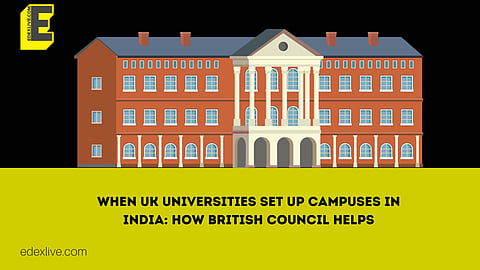When UK universities set up campuses in India: How British Council helps
What are some common hurdles UK universities face while setting up campuses in India, and what strategies are being used to overcome them?
Setting up a campus in India is a significant and complex undertaking for UK universities. One of the starting considerations is the eligibility criteria set out by India’s University Grants Commission (UGC), which requires that only foreign universities ranked within the top 500 globally - either overall or in a specific subject area - are permitted to establish campuses in the country. This benchmark, while encouraging quality, limits the pool of eligible institutions and adds a strategic dimension to how universities assess their readiness and positioning.
Over 100 UK universities are currently eligible under these criteria, including all 25 members of the Russell Group, which strengthens the potential for high-quality entrants.
Also, this is still new for many universities...
This is still relatively uncharted territory. Many universities are currently observing the early entrants - often referred to as ‘first movers’ - to better understand the regulatory environment, the practical implications of campus establishment, and the reception from stakeholders on the ground. As these initial efforts progress and demonstrate success, it is expected that confidence will grow, and more institutions will actively explore the opportunity.
However, each institution has its own governance structures, approval processes, and risk frameworks. This means interpreting and applying the UGC’s International Branch Campus (IBC) regulations is rarely straightforward.
The British Council plays a central role here, supporting universities through policy interpretation, direct engagement with the UGC and relevant government bodies, and providing strategic insights tailored to institutional contexts.
How else does the British Council help?
Cultural and operational nuances are an important part of the journey - ranging from understanding the local educational landscape to building meaningful partnerships and aligning with regional priorities.
The British Council supports institutions in navigating these with confidence, offering scoping visits, introductions to state authorities, and continued cultural and contextual guidance.
We also share knowledge gathered from across the sector, flag potential risks early, and help institutions develop an approach that is not only compliant but collaborative.
Many universities wish to integrate into India’s higher education landscape, contributing to and learning from their Indian counterparts rather than operating in isolation. We strongly encourage mutuality and reciprocity in the approach to setting up in India, seeing themselves as part of the family of higher education institutions standing together for the greater good of young people in both countries.



